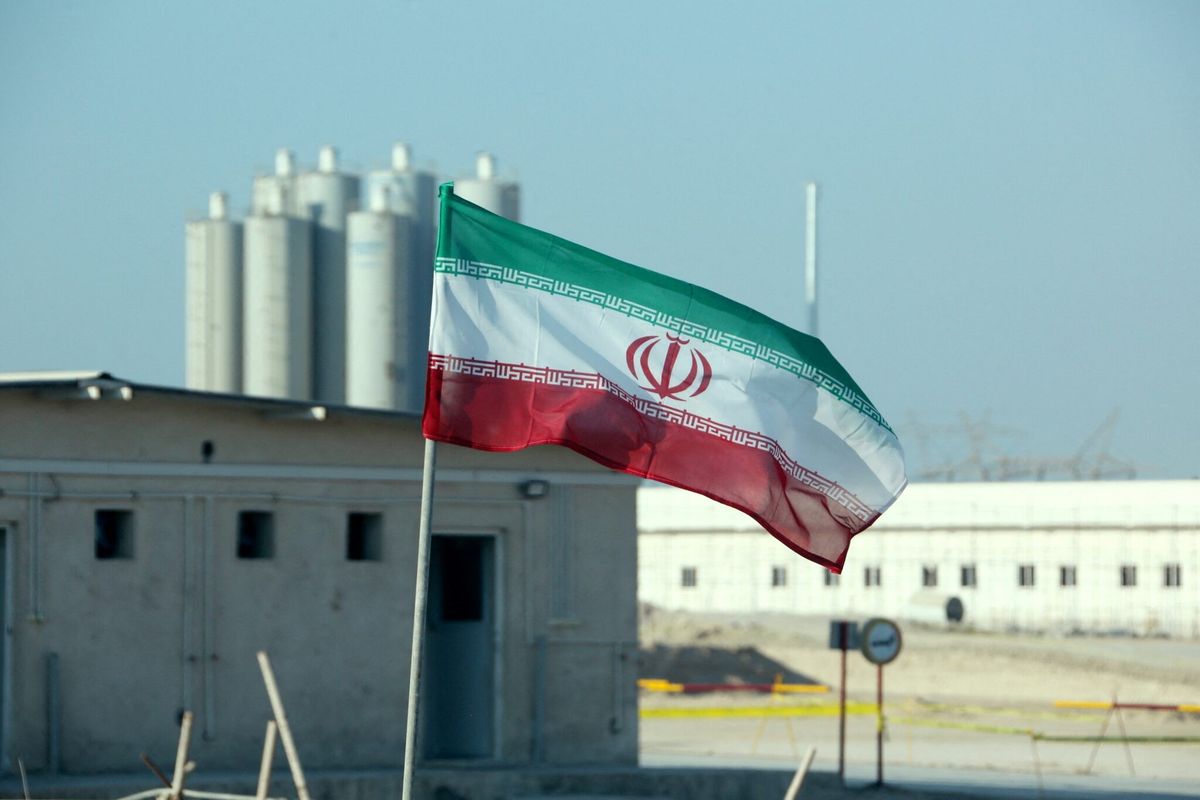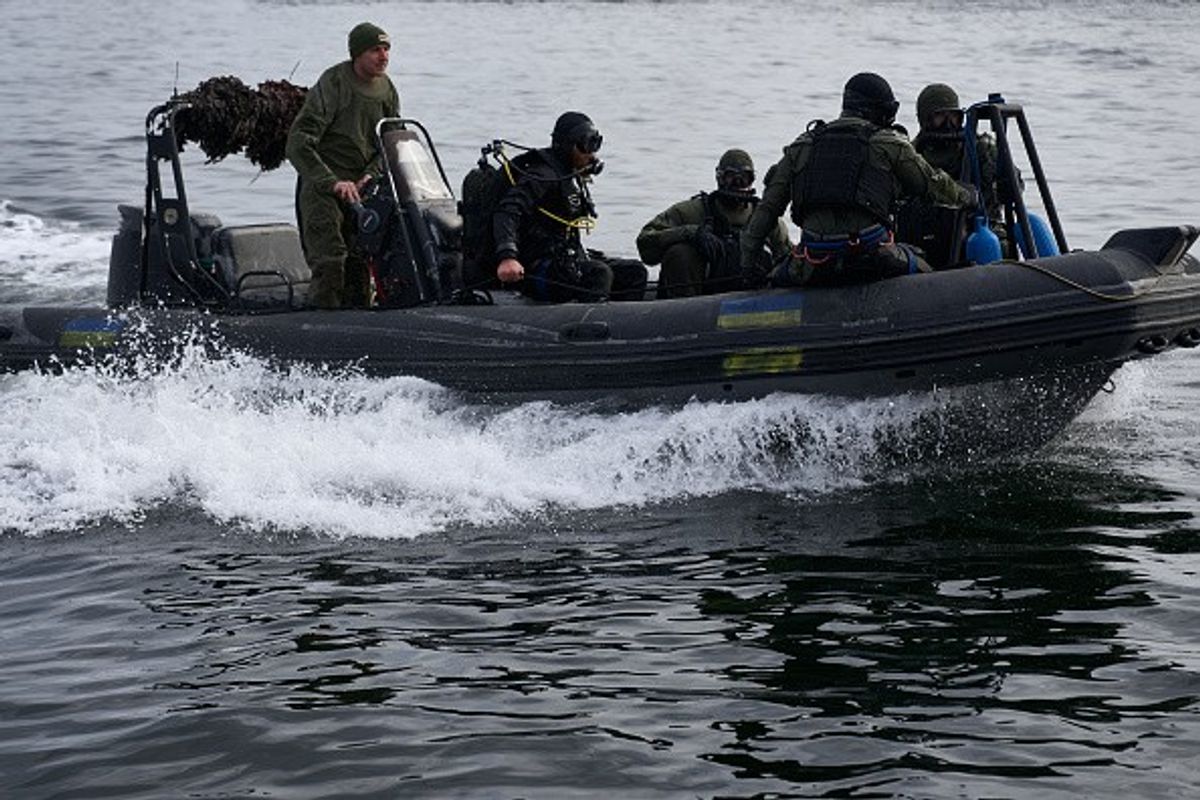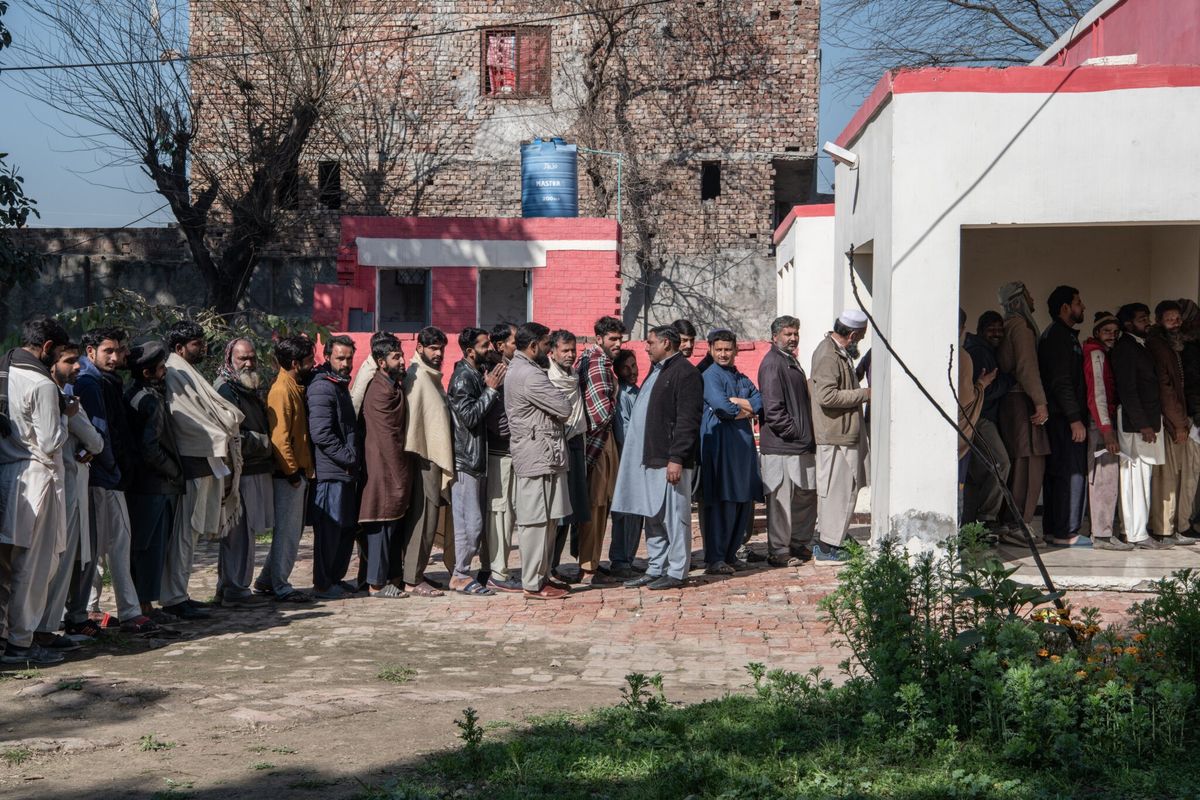SUBSCRIBER+ EXCLUSIVE REPORTING - Has Kim Jong Un decided to go to war? A blizzard of bulletins from North Korea has sparked a debate among Korea-watchers and policymakers, and led some to conclude the answer is Yes.
“We believe that, like his grandfather in 1950, Kim Jong Un has made a strategic decision to go to war,” two highly respected scholars, Robert Carlin and Siegfried Hecker, wrote on the website 38North in January.
Carlin and Hecker were connecting dots which they said added up to much more than the usual bluster from the North Korean leader: among them, Kim’s opening the door to a first use of nuclear weapons if he felt his country was threatened; the December test of a nuclear-capable intercontinental ballistic missile (ICBM) that can reach any target in the U.S.; and Kim’s January announcement of an “exponential” expansion of his nuclear arsenal.
January brought more worrisome developments. On the 5th, the North Korean military fired hundreds of artillery shells into waters near South Korean islands, forcing residents to seek shelter, and on the 14th the North said it had tested a new solid-fuel intermediate-range missile tipped with a hypersonic warhead.
A day after that, Kim made the speech that some took as a call to war.
Addressing the Supreme People’s Assembly, Kim called South Korea “the most hostile” country and said the North’s constitution should be altered to label South Korea an enemy state. Kim instructed his military to prepare for a “showdown with the enemy” and “a great event to suppress the whole territory of South Korea.”
In one stroke, Kim abandoned a decades-old policy of peaceful reunification of the two Koreas - a policy put in place by his grandfather, Kim Il Sung - and went so far as to call for the destruction of symbols of South-North cooperation. A few days later, workers demolished the huge monument in Pyongyang that was built in the name of reconciliation with the South.
For all the military tests and provocations, it was his speech that stunned the experts.
“He denounced the doctrine that was set by his father and more importantly, his grandfather, Kim Il Sung,” said Sue Mi Terry, a former CIA analyst and producer of “Beyond Utopia,” a documentary about North Korea. In an interview with The Cipher Brief, Terry noted that “Kim Il Sung is somebody he had always tried to emulate, because he's still considered a God-like figure in North Korea…It’s a huge change.”
For decades, North Korean leaders referred to South Korea’s citizens as their beleaguered brothers and sisters, people who would one day be freed from the U.S.-backed regime in Seoul. A “great ethnic unity” would be restored, a “reconciliation” with their “fellow countrymen.”
“The danger is already far beyond the routine warnings,” Carlin and Hecker wrote, adding that the Korean peninsula was now “more dangerous than it has been at any time since early June 1950,” when Kim Il-Sung invaded the South.
Carlin told The New York Times that North Korean military planners would favor a surprise attack along the lines of the 1950 model, as a way to “knock the Americans mentally off-balance, knock everybody off-balance.”
Are they right? Has Kim determined that no other approach can bring his country the recognition he believes it deserves?
Decoding Kim
Understanding the moves and motives of North Korean leaders has never been an easy thing. In the wake of Kim Jong Un’s recent statements and actions, there is consensus only on this: Kim has made a sharp and potentially dangerous pivot.
Privately, U.S. officials said Kim had crossed a threshold, shifting to a policy of “open hostility” with the South. Jonathan Finer, the deputy national security adviser, told an Asia Society forum that North Korea had “chosen to continue going down a very negative path.”
“I don’t believe that North Korea is interested in actually fighting a war,” Daniel Russel, a vice president at the Asia Society Policy Institute who served as a top Asia official at the State Department and the White House, told The Cipher Brief. In his view, Kim’s “purpose is primarily coercion and intimidation, not conquest.”
That assessment doesn’t make Russel sanguine about the current situation. He believes Kim is “laying the groundwork for a bold strike” that will show that the U.S. can neither prevent nor protect against North Korean aggression.
Terry doesn’t believe that Kim is about to unleash a war.
“There's no evidence,” Terry said of the Hecker-Carlin claims, and she sees evidence to suggest otherwise. If Kim were planning war, she said, “Why would North Korea be sending artillery and rockets to Ukraine? Wouldn't you be stockpiling them? Are we seeing any troop movement towards the DMZ (Demilitarized Zone)? Any unusual troop movements? I just don't see evidence of it.”
Indeed, U.S. officials report no signs of a buildup of military assets near the border with the South, and ample evidence of those shipments of military supplies to Ukraine.
Terry also holds to a view she has expressed repeatedly over the years: that Kim Jong Un is “a rational actor.”
“If he launches a war right now, they are risking a massive response,” she said. “The U.S. will have to respond. And if there's an all-out war, the North Korean regime would perish…I just don't see it.”
Joseph DeTrani, a former CIA Director for East Asia Operations and special envoy to the Six-Party Talks with North Korea, agrees.
“I don't think Kim Jong Un is suicidal and that's what it would be,” he told The Cipher Brief. “It would be suicide if he went to war.”
But Russel, Terry and DeTrani all agree that the danger level is unusually high, even for a part of the world known for raising geopolitical tensions.
In a recent piece for Foreign Affairs, Terry said the most likely explanation for Kim’s dramatic shift was that he was laying out “a logical, moral, and ideological basis” for future aggression against the South, and for provocations that would stop short of all-out war.
Russel imagined a scenario in which Kim might “conduct a military operation that is potent enough to shock South Korea but insufficient to force the United States — whose hands are full with Ukraine and Gaza — to risk war on the Korean Peninsula.”
In such a scenario, Russel said, Kim would hope for a U.S. reaction limited to “rhetorical condemnation, a few more ineffective sanctions, and a firm hand on South Korea’s military to prevent escalatory retaliation.”
Accidents will happen
The word “provocation” surfaces in nearly every conversation about the road ahead. Even if Hacker and Carlin are wrong, and Kim isn’t planning a full-on attack, a widely-held fear is that Kim will carry out military provocations which - given the presence of an unusually hard-line government in South Korea - might easily spiral into nightmare scenarios.
Examples: a raid on the South inspired by the one undertaken by Hamas against Israel on October 7 (South Korean officials called the Hamas attacks a “wake-up call” for their own security); a multi-missile launch into South Korean waters; or a strike against South Korean islands or maritime assets.
“North Koreans like to conduct provocations,” Terry said, “particularly in an election year. There's an election coming up in South Korea - and there's the presidential election in the United States.”
In the wake of Kim’s recent statements, many have recalled the North’s 2010 attacks on a South Korean warship, the Cheonan, which killed 46 sailors. That attack drew condemnations and sanctions but no military response from the South.
Terry believes a similar incident today would play out very differently. Referring to the North’s January 5 artillery barrage against South Korean islands, she said that had the strike caused fatalities, South Korean President Yoon Suk Yeol might well have ordered a retaliatory strike.
“I spoke to several of the Yoon administration people, and they say, (in the event of North Korean aggression), we will exponentially hit back,” Terry said. “This is a very different administration. So I am worried about an escalation cycle.”
DeTrani is too. “This is North Korea, they'll be provocative,” he said. In his view, Kim is telegraphing a willingness and intent to carry out any number of lower-level aggressions—while building his military capabilities for whatever follows.
“They'll take it to a line, they'll try to incite and they'll be aggressive and provocative,” DeTrani said, adding that the tougher approach from the South and strengthened U.S. alliances with South Korea and Japan make escalation more likely.
The North Koreans “have gotten away with a lot of their bad behavior in the past, and that may have conditioned them to believe they can continue to be that provocative,” DeTrani said. “But I think the situation is so different now with the Yoon government and our real commitments for extended nuclear deterrence for South Korea and Japan. I think there will be a significant response, and a potential for escalation that I think should be very concerning to everyone.”
Why has Kim shifted course? Many cite his Hanoi summit with then-President Donald Trump in 2019 as a moment of dashed hopes for Kim - a meeting he imagined would bring a ground-breaking thaw with the U.S. and ended instead with a snub. Russel and Carlin said Kim felt humiliated after the Hanoi meeting, and left thinking diplomacy was at a dead end.
Two years later came the chaotic and widely criticized U.S. withdrawal from Afghanistan, which many believe Kim saw as a U.S. retreat from the world stage. North Korean officials “portrayed it as an American global retreat,” Carlin said. Six months later, Russia invaded Ukraine - and whatever Kim may have thought of that geopolitical earthquake, it has undeniably led to a bonanza for Kim: a renewed and greatly beneficial relationship with Vladimir Putin.
The Russia factor
One of the most consequential bilateral meetings in 2023 was a September summit in Russia’s Far East, when Kim Jong Un and Putin met to tour space launch facilities, eat crab dumplings and cement a partnership that has greatly benefited both countries.
While Ukraine struggles to keep its ammunition warehouses stocked, and the U.S. wavers on keeping the ammo supply chain running, multiple reports say North Korea has supplied more than one million artillery shells to Russia (the number may be significantly higher) since the 2022 invasion. Recently the White House said that North Korean medium-range ballistic missiles had made it to the battlefields of Ukraine.
Russia has returned the favor by sharing its expertise in advanced military technologies. Last year North Korea’s first two launches of military satellites ended in failure. In November came success, and reports that this was a direct result of Russian assistance. During Kim’s September visit to Russia, Putin had been asked whether Moscow would help North Korea build and launch satellites.“That’s why we came here,” he replied.
Russia also has raw materials that would be of enormous value to the heavily sanctioned North Koreans. Last month North Korea’s Foreign Minister visited Moscow, called Putin “the Korean people’s closest friend” and said the Russian leader might visit Pyongyang soon. Such a visit would be valuable to North Korea as a clear demonstration that the nation isn’t that isolated after all, given its long relationship with China and the newly close partnership with Russia.
The Russia-North Korea bond is a multiplier of bad news for the U.S. and the West. Despite heavy Western sanctions against both nations, each now has workarounds to obtain banned weapons and technology. In short order, two core U.S. objectives - stalling North Korea’s military buildup and punishing Russia for its war on Ukraine - have taken a hit.
What to do?
The experts have no shortage of recommendations for a U.S. response - but little confidence that any will bring a breakthrough.
Many start with deterrence - arguing that the U.S. and South Korea must send unmistakable diplomatic and military signals to the North to stop further provocations in their tracks.
Terry, DeTrani and others have called for a deepening of the U.S. alliance with Japan and South Korea, and for more trilateral and bilateral military exercises with those countries to deter North Korea and prepare for whatever Kim does next. Some have suggested dispatching more nuclear-capable submarines, bombers, and other U.S. military assets to the region, a muscular way of making clear that the U.S. stands ready and able to defend South Korea.
The conundrum for Washington and Seoul: such clear and forceful messaging may also drive Kim to take more aggressive actions.
DeTrani believes there’s a way to thread the needle.
“A little of both,” he said. “There has to be an exit ramp, an offer for a new approach for North Korea…a move where you can say, If you stop launching these bloody missiles and don't have a seventh nuclear test, then you come back and talk to us. And maybe we can get movement.
“But deterrence also has to be a key issue now, with all these nuclear capabilities and missiles and the rhetoric and the extremes, and now the North’s embrace of Russia. So it’s a combination of both, strong deterrence but with an off-ramp that in some ways conveys to this guy, ‘don’t do something stupid.’”
Another suggestion is a familiar one: pressure China to do more, given its long-standing influence as North Korea’s chief outside provider of goods and commerce.
President Biden and various senior U.S. officials have spoken to their Chinese counterparts about pressing North Korea to end its missile tests. There is a long history of such American requests; and for all the help China has provided North Korea, it has a strong interest in avoiding conflict on the peninsula.
“They haven't been very constructive in the past because of the tension in our relationship, but I think they'll be more constructive,” DeTrani said. “And that's such an obvious area for common ground. Neither the U.S. nor China wants to see North Korea inciting this sort of conflict on the peninsula and in the region. That's maybe being too optimistic, but I think that's the off-ramp.”
Terry doesn’t buy it. “We've been talking about this for how many years - trying to get China to do something?” She said that while China has helped in this way in years past, “it’s a very different time right now with the US-China relationship being what it is.”
More broadly, the problem is that American presidents and South Korean leaders have tried just about everything before - military exercises, isolation and sanctions, and dramatic diplomatic overtures. The Biden administration has made repeated offers of a return to the negotiating table; on January 19, after Kim’s provocative address, the State Department said the U.S. still “seeks dialogue” with the North “without preconditions and harbors no hostile intent.”
Over the years, aside from a few bursts of momentum, none of it has worked.
The Trump Factor
In a rebuttal to Carlin and Hecker’s 38 North article, Thomas Schäfer, Germany’s former ambassador to North Korea, argued that Kim wasn’t planning a preemptive war, but rather ratcheting up tension to give himself bargaining power should Donald Trump win a second term.
Terry also suggested that Kim may be biding time until the U.S. election and the possibility of another Trump administration, in which case he may have a more sympathetic ear. She added that Trump might delight in saying he was the one who had brought North Korea back from the brink.
“War is not inevitable,” Terry said. For all the frightening action and rhetoric from Kim Jong-un, she added, “now is not the time to panic. It is time, instead, to send North Korea a signal of resoluteness and strength. U.S. power has kept the peace for more than 70 years on the Korean Peninsula. There is no reason that it cannot continue to do so.”
Read more expert-driven national security insights, perspective and analysis in The Cipher Brief










